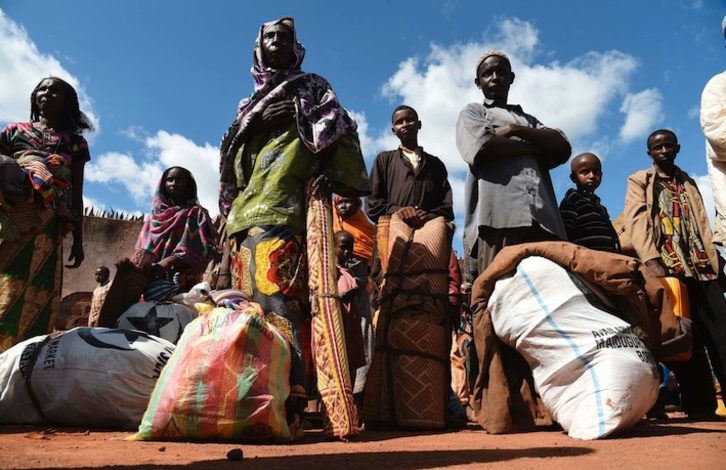Over 200,000 Displaced Under 2 Months In Central African Republic

More than 200,000 persons fleeing from violence in the Central African Republic have been displaced in less than two months, HumAngle can report.
More than half of this number have escaped to neighbouring countries.
According to a statement by the United Nations High Commission for Refugees (UNHCR) on Friday, some 92,000 of these refugees have since arrived in the Democratic Republic of Congo.
Besides the Democratic Republic of Congo, 13,240 Central African Republic refugees have also been reported to have arrived in Cameroon, Chad and Congo Brazzaville since the launching of hostilities in Dec. 2020 by armed groups targeting Bangui, the capital city.
The total of Central African Republic nationals currently taking refuge in neighbouring countries has been put at 105,000, which is an indication of a high influx of many people escaping from their country since Jan. 8, 2021, when the UNHCR gave the figure as 30,000.
“The refugees continue to pour in,” said Boris Cheshirkov, spokesperson of the UNHCR during a press briefing on Friday.
On the other hand, the UNHCR spokesperson revealed, about 100,000 persons remain internally displaced in the Central African Republic, according to the most recent figures registered by the United Nations Office for the Coordination of Humanitarian Affairs (UNOCHA).
“The persistent instability inhibits humanitarian assistance efforts and poses difficulties in accessing internally displaced persons and the principal road usually taken to supply Bangui has been closed,” the UNHCR official stated.
There are armed groups in Batangafo and Bria where displaced communities have found refuge and their presence seriously compromises the protection of displaced persons who risk being forcefully recruited by the said armed groups, restriction of movement, extortion and threats, according to UN official.
“We have been receiving very disquieting reports on the violations of human rights as the armed groups move around,” Cheshirkov to journalists in Bangui.
“We are hearing talk about looting, sexual violence which is rapidly augmenting and the situation is really preoccupying.”
The Central African Republic government had this week declared a 15-day state of emergency throughout the national territory which is largely occupied by armed groups.
Central African Republic nationals arriving in the Democratic Republic of Congo had to cross the Oubangi, Mbomou and Uele rivers which constitute the natural border between DR Congo and the Central African Republic while others entered the Congo through 40 localities in the provinces of North Oubangi, South Oubangi and Lower Uele, according to the UNHCR.
The UNHCR said it is already putting the necessary materials in place in North Oubangi as a pre-emptive measure before the zone becomes inaccessible by road during the rainy season which begins soon.
“Most of the refugees are living in the hinterlands, which are difficult to access, in frightening conditions without shelter or food. They depend on fishing in the river and on what the local villagers can give them,” Cheshirkov revealed.
For many of the refugees, the river is the only source of water while malaria, respiratory infections and diarrhoea are frequent among the refugees. This has become a source of worry for the UN.
Food, shelter and medicines are the most urgent needs of the refugees including identification documents as the UNHCR continues to biometrically register the about 1,000 Central African Republic refugees arriving the Democratic Republic of Congo daily.
The UNHCR said it would need about 151.5 million US dollars this year to finance its humanitarian assistance to Central African Republic refugees.
Support Our Journalism
There are millions of ordinary people affected by conflict in Africa whose stories are missing in the mainstream media. HumAngle is determined to tell those challenging and under-reported stories, hoping that the people impacted by these conflicts will find the safety and security they deserve.
To ensure that we continue to provide public service coverage, we have a small favour to ask you. We want you to be part of our journalistic endeavour by contributing a token to us.
Your donation will further promote a robust, free, and independent media.
Donate HereStay Closer To The Stories That Matter




